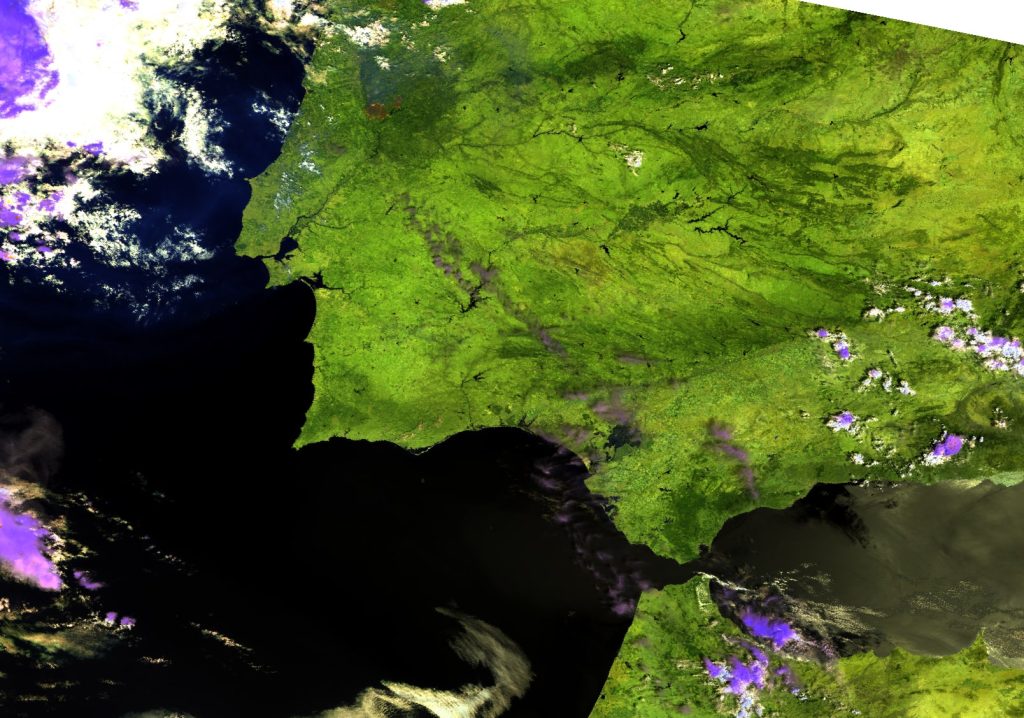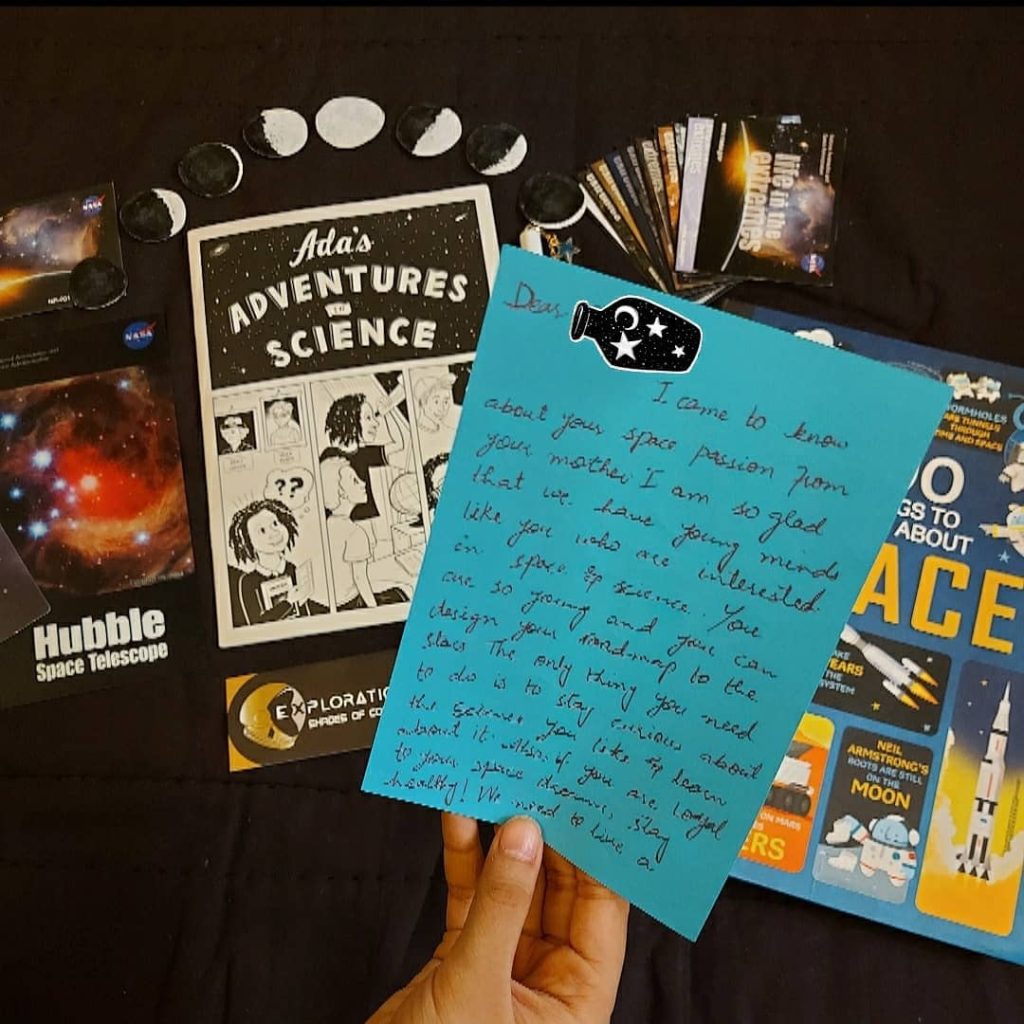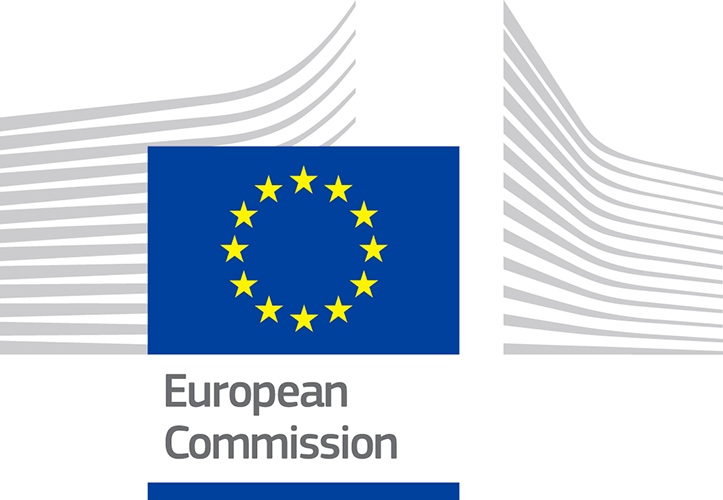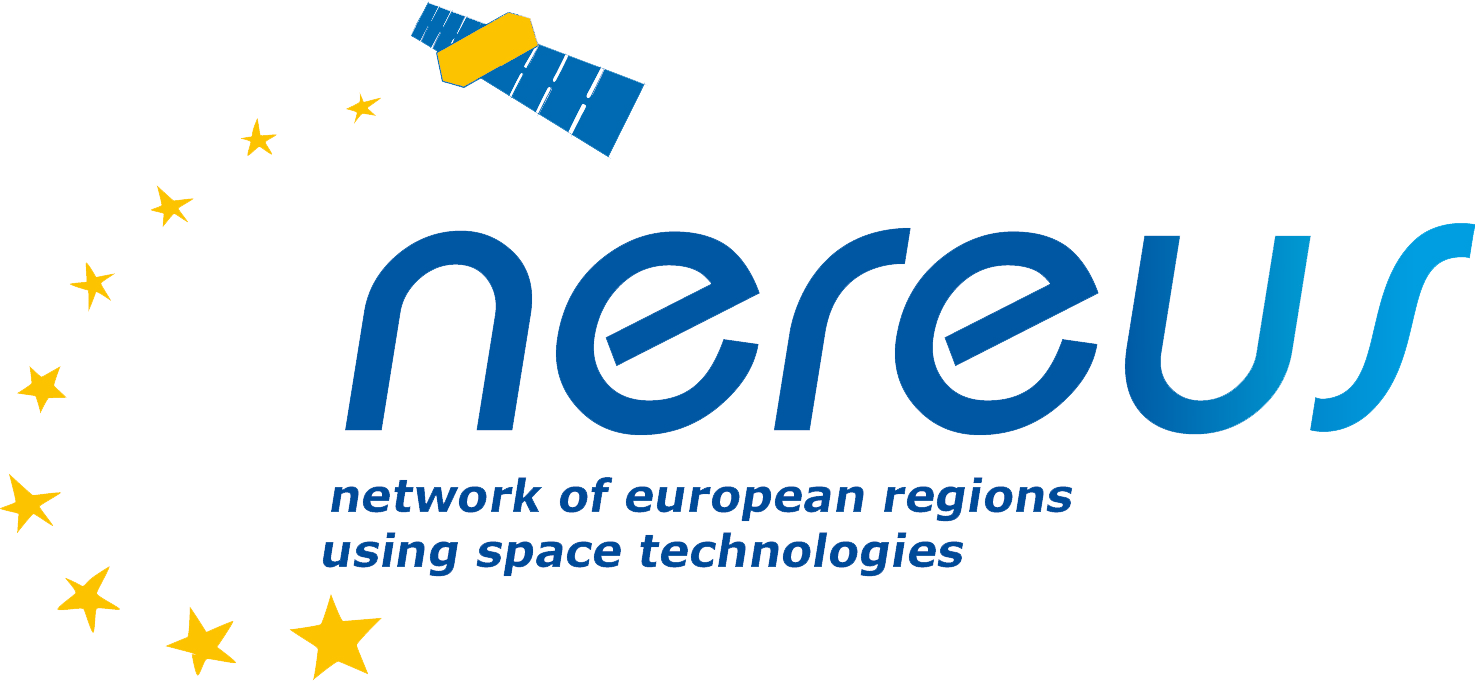Space requires a holistic approach
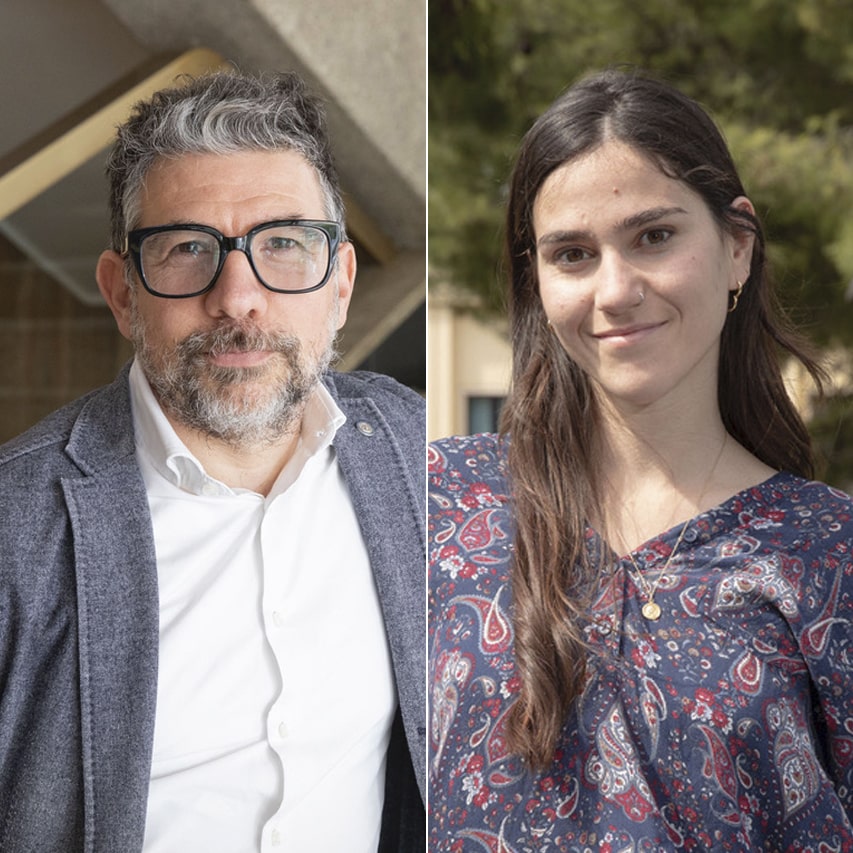
Francesco Giordano - Physics professor
Domenica Arias - Student
University of Bari, Italy
Space requires a holistic approach, and as a scientist, I have always been fascinated by exploring the mysteries of our Universe. We, at the University of Bari, try to create multidisciplinary and interdisciplinary profiles, fundamental for the new era of the Space Economy. (Francesco Giordano)
As a child, always playing in contact with nature, I began to wonder about the laws that govern the world, and from this, my curiosity for science was born. In my thesis, I used remote sensing data to detect and monitor fires. (Domenica Arias)
Interview
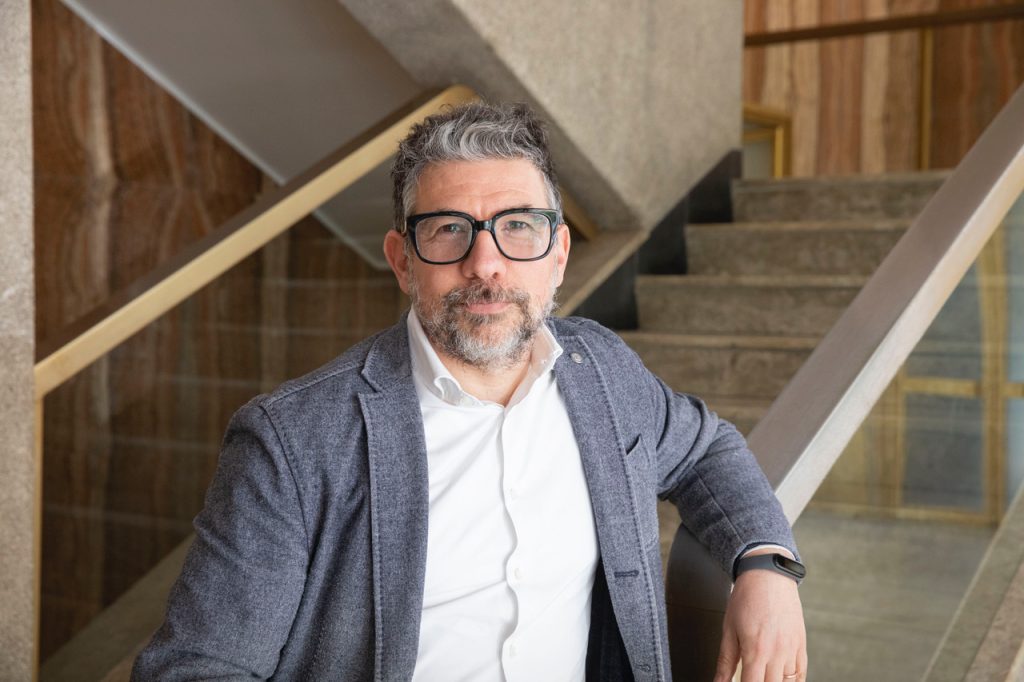
My name is Francesco Giordano. I am full professor of Experimental Physics at the University of Bari in the physics department.
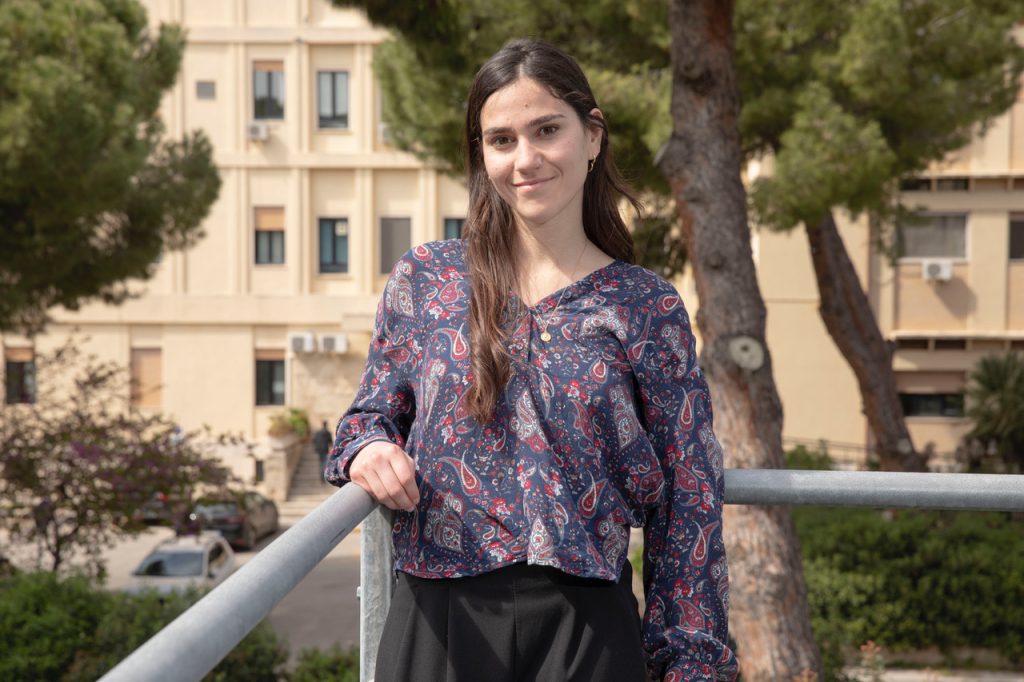
My name is Domenica Arias. I was born in Venezuela and I’m 27. When I was five years old, I moved to Italy and since then I’ve been living in Petrito, a small town near Bari. I graduated in physics at University City of Bari and now I’m about to get my master’s degree in Theoretical System and Complex systems.
Francesco Giordano
We are developing a lot of projects to promote the aerospace sector in our region, these are especially dedicated to the technological transfer of fundamental research for society.
I held the role of physics study coordinator for five years. During this period I completely redesigned the masters degree in physics, focusing the role of space technologies and space sciences within the masters degree in physics. I personally teach technologies for space applications. I am also a professor of Astrophysics, in which I focus on a lot of aspects related to cosmology, and the observation of our universe in the very-high energy spectrum.
Moreover, our university opened a call for multidisciplinary skillsets and more than 100 courses have been instituted, one of which is called Agenda 2030 Education for Sustainability. The course involves some subjects related to space technologies used in the sustainable development of our planet, the study of the planet’s health, and risk mitigation – which coincide with this exhibition’s scope. The University of Bari, together with the Polytechnico Bari, the two universities of our city, co-designed a PhD course entitled “Engineering and Sciences for Aerospace”, dedicated to a multidisciplinary approach to developing sciences, technologies, and new instrumentation for deep space observation, as well as the Earth monitoring.
The message that I’d like to stress for visitors, especially for the younger generation, is that now space requires a holistic approach. In what sense? In the sense that I am a scientist. I have been fascinated since the beginning by exploring the mysteries of our universe. But now as a member of a technological district within a region that is committing great effort and resources to increasing the space research field, I see that those profiles now required by the private sector are multidisciplinary profiles.
Domenica Arias
There were many things that inspired me to pursue a science career. Among them, there’s my childhood when I used to play outdoors. In those moments, I got in such close contact with nature that I started to question how things work and I started to get intrigued by these things. Later, during high school, I started studying philosophy and the subject fed my curiosity and gave me the possibility of realizing what it’s like to understand and study nature. The decisive point came during high school when I decided to pursue this career after reading many scientific papers and watching documentaries. However, before enrolling in the physics department, I felt a deep insecurity and fear about this path, because at high school, science was delivered to us in a very incomplete and confused way.
So I perceived science as far removed from the capabilities of ordinary people like myself.
So far, science has offered many models to understand and predict the effects that climate change can have and will have on Earth. However, these models are too general to address problems in territories that are different from each other, since every territory has its own culture, its own climate and topography. In this scenario, it is crucial that science keeps on trying to improve its findings in order to address such problems in a very detailed way.
In my thesis work, for example, I used remote sensing data to detect and monitor wildfires, which had become more frequent and widespread across the United States, and I built a predictive model using machine learning algorithms.
In fact, it’s useful not only for predicting the occurrence of wild fires, but also for giving the right information and extractions for those people, as well as the agency, who manage these issues.
I think that the real advantage of remote sensing data is the fact that they are freely available for other people and they can also be used not only for research, but for building an educational model for ordinary people to put them in a closer relationship with science and sensitize citizens to climate change problems.
Ensure inclusive and equitable quality education and promote lifelong learning opportunities for all
Check out more
